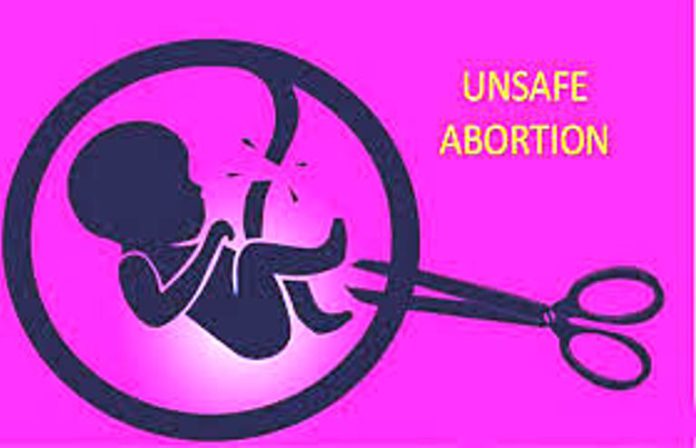
A university student was jailed for two years after taking pills that caused her to have an abortion.
The young mum, who had a two year old daughter when she became pregnant again aged 20, told of her horror that she ended up behind bars.
She was charged with taking pills that caused her to have an illegal abortion.
“I felt I had no other choice other than to (plead guilty),” Laura, not her real name, told the Sunday Times.
“The prosecution said if I didn’t plead guilty, they would charge me with child destruction, and I would likely go to prison for life.”
Last month the director of public prosecutions, Max Hill, was urged to urgently stop the prosecution of women who end their own pregnancies.
The number of women reported to the police for ‘criminalised abortions’ has been on the rise with 30 so far in 2022 – already higher than previous years.
In an open letter signed by 66 organisations and people, including the British Pregnancy Advisory Service, barristers and women’s rights groups, called for the prosecutions to stop saying women targeted are often “vulnerable” and in “desperate situations”.
They pointed out that two women are facing prosecution in England now.
Referring to the US developments which saw abortion rights destroyed, the letter said: “It is our strong belief that in the 21st century, in the shadow of the overturning of Roe v Wade, it is never in the public interest to prosecute women in these circumstances.”
In reply Mr Hill said that abortion cases will be given an additional level of scrutiny from their lawyers before charges are brought against women.
While abortion is accessible, it is still officially a criminal act in the UK – except in Northern Ireland, where it was decriminalised in 2019.
Under the Abortion Act and the Human Fertilisation and Embryology Act 1990, abortion is allowed up to 24 weeks of pregnancy if there is a risk to the physical or mental health of the women or her existing children.
While there is no time limit for abortions if there is evidence of a fatal foetal abnormality or a significant risk to the mother’s life.
But before an abortion can proceed, two doctors must ensure that the requirements of the Abortion Act are fulfilled, and they must both sign the certificate.
If a woman procures a miscarriage through medication without going through this process, it can be a criminal offence under the 1861 Offences Against The Person Act (OAPA). The maximum penalty is life.
New laws passed during the pandemic allow abortion pills to be taken at home up to ten weeks into a pregnancy but later abortions must be carried out in a medical setting.
But Laura is also calling for a change in the law, saying that women who have an illicit abortion only do so “where someone’s in a very awful place in which they’ve been given really no other choice”.
The young mum eventually went on to graduate after serving a two-year prison sentence but says she still has nightmares about her ordeal.
“I’d never even had a detention at school. It was awful,” she said.
She said an abusive boyfriend told her not to go to the doctor but pills bought online instead.
At the time she believed she was eight to ten weeks pregnant when she climbed into the bathtub and gave birth.
“I almost died,” she says. “I remember the bath being filled with at least an inch of blood.
“I wanted to die. Honestly, I just felt like the whole world had just ended in front of my eyes.”
She called an ambulance and was taken to hospital, where medics told her she had given birth to a 30-week foetus. According to the NHS, a full pregnancy is 40 weeks.
She admitted to the medics how she’d taken abortion pills and police were called who guarded her bedside.
“They actually had a police officer with me in the hospital the whole time and wouldn’t let me speak to anyone other than the police,” she said.
She was only allowed a visit from her partner for “30 seconds” when he ”whispered in my ear that he would kill me if I told anyone that he was involved.”
“They literally took me from the hospital, straight to the police station,” she said.
